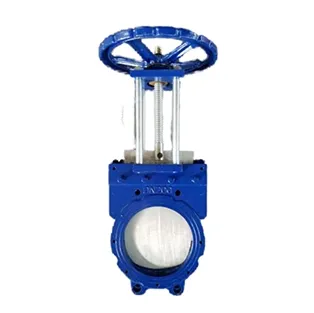needle valve
Understanding Needle Valves Function, Design, and Applications
Needle valves are a critical component in various fluid control applications, allowing for precise regulation of flow. They are commonly used in a range of industries, including oil and gas, chemical processing, water treatment, and laboratory settings. This article delves into the design, operation, advantages, and applications of needle valves, highlighting their significance in fluid dynamics.
Design and Operation
A needle valve is designed with a slender, tapered point at the end of the valve stem, which fits into a matching seat. This unique design allows for fine adjustments to the flow of liquids or gases, providing better control compared to standard valves. When the valve is turned, the needle lowers into the seat, gradually restricting the flow path. Conversely, turning the valve counterclockwise lifts the needle, increasing the flow.
The construction of needle valves typically involves durable materials such as stainless steel, brass, or plastic, depending on the application and the fluids being handled. Needle valves can be manually operated or automated, with actuators allowing for remote control. The size of needle valves can also vary, but they are often small to enable precise control in tight spaces.
Key Features and Advantages
1. Precision Control One of the primary advantages of needle valves is their ability to control flow rates with high precision. This characteristic is particularly important in applications where the correct flow rate is critical to the process, such as in laboratory experiments or in the adjustment of fuel supply.
2. Leak Resistance Needle valves are designed to provide tight sealing, minimizing the potential for leaks. This is essential in industries where fluid containment is critical for safety and environmental considerations.
3. Versatility These valves are versatile and can handle various types of fluids, including gases, liquids, and even slurries. Their construction can be tailored to withstand different pressure and temperature conditions, making them suitable for various applications.
4. Simplicity of Operation Needle valves are generally easy to operate, allowing for quick adjustments without requiring extensive training or complex tools. Their straightforward design means they can be quickly integrated into existing systems.
needle valve

5. Compact Size The compact nature of needle valves makes them ideal for space-restricted applications. Their small size does not compromise their performance or control capabilities.
Applications
Needle valves are employed in a wide array of applications, showcasing their adaptability and importance. Some of the common domains include
- Laboratory Equipment In laboratories, needle valves are often used to control gas or liquid flows in analytical instruments, ensuring accurate measurements and consistent results.
- Hydraulic Systems In hydraulic systems, these valves help control the flow of hydraulic fluids, facilitating precision in machinery and equipment operation.
- Oil and Gas In this sector, needle valves regulate the flow of various fluids, helping to control well outputs or direct flow within pipelines efficiently.
- Water Treatment Needle valves are used in water treatment facilities to manage the flow of chemicals and other additives, ensuring proper treatment.
- Automotive In automotive applications, needle valves are often found in fuel injection systems, where they help regulate fuel flow into combustion chambers.
Conclusion
Needle valves are more than just simple components in fluid systems; they are vital tools that enhance the control and efficiency of various processes across multiple industries. With their precise flow control, reliability, and adaptability, needle valves play an essential role in ensuring systems operate effectively and safely. As technology advances and industries evolve, the role of needle valves will continue to be significant, underscoring the importance of understanding their function and application in modern engineering.
-
The Key to Fluid Control: Exploring the Advantages of Ball Valves in Industrial SystemsNewsJul.09,2025
-
The Versatile World of 1, 2, and 3 Piece Ball ValvesNewsJul.09,2025
-
Stainless Steel Ball Valves: The Ideal Choice for Efficient Flow ControlNewsJul.09,2025
-
Optimizing Fluid Control with Ball Float ValvesNewsJul.09,2025
-
Manual Gate Valves: Essential for Control and EfficiencyNewsJul.09,2025
-
Everything You Need to Know About Butterfly ValvesNewsJul.09,2025
-
The Versatility of Wafer Type Butterfly ValvesNewsJul.08,2025




